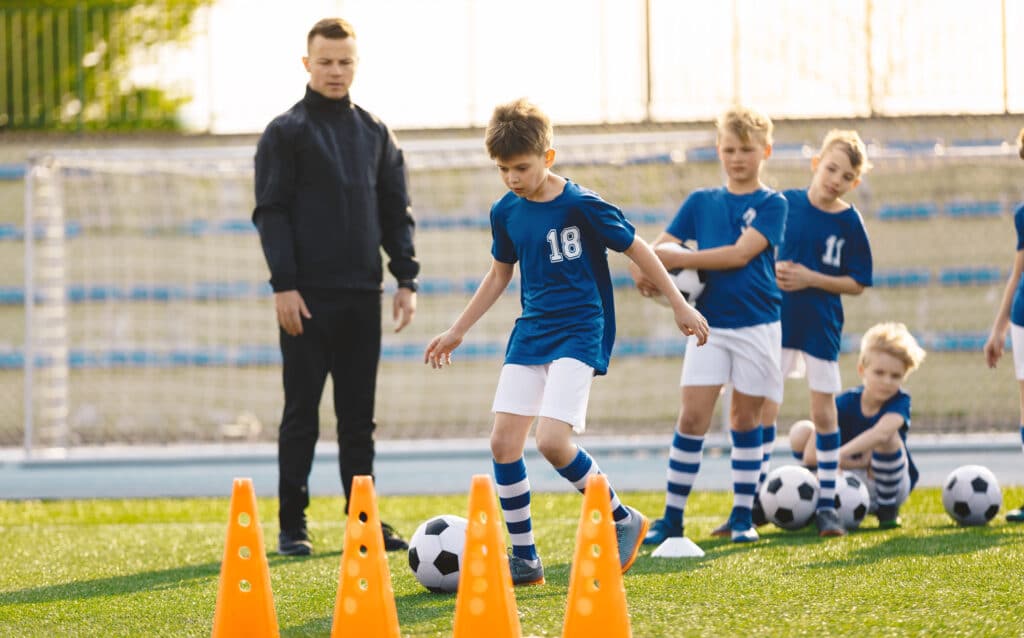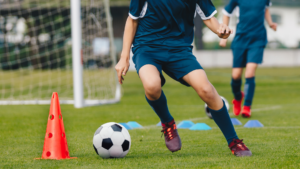The world of football is a dynamic and challenging environment where players must be in complete control of their movements to be successful. For this reason, it is vital to have a mastery of coordination skills. These are an essential pillar in the training of any athlete. According to MBP (2014), control of body actions and movements is crucial for success in the game.
These coordinative skills, known as Basic Motor Skills (BMS) and Specific Motor Skills (SMS), are especially important in the first steps of development, during the Adaptation and Initiation period. But what is their real value? Are they still as important in later stages? And do they maintain the same relevance during training?
Firstly, it should be emphasised that coordination skills are not just another part of training, but the very fabric that underpins sporting performance. To be successful in the game, it is vital that footballers can execute movements with precision and harmony. This translates into greater effectiveness in every action they take on the pitch.
For this reason, the importance of coordination skills does not diminish over time. In fact, it remains a cornerstone in the development of athletes throughout their lives.
ADAPTATION AND INITIATION STAGE
It is at this early stage that coordination develops most sensitively. Young athletes are moulding their co-ordination skills as they become familiar with their body and the specific movements required in their sport. It is a critical period for establishing a solid foundation.
Caro and Ferrer (2010) discuss skill development across the lifespan and highlight that the Adaptation and Initiation period (approximately 6-14 years) is when the most sensitive growth in coordination is experienced. However, even in the Technification period (around 15-19 years of age), significant development is still observed.
TECHNIFICATION STAGE
As athletes move into adolescence and the transition to the Technification stage, the importance of coordination remains significant. Although it does not develop as rapidly as in the Adaptation and Initiation phase, there is still notable growth. At this stage, athletes continue to improve their coordination as well as refine their technical and tactical skills.
Coach Brüggemann (2004), suggests that in the beginning of the Tecnification period (15-16 years), the focus should be on mastering coordinative abilities, along with technical and tactical skills.
HIGH PERFORMANCE PHASE
As athletes reach the High Performance period, their coordinative development stabilises. However, this does not mean that it should be neglected. It remains a critical factor in maintaining optimal performance and ensuring that all the skills acquired over the years are executed accurately on the pitch.
In summary, coordination skills play a fundamental role in the athlete’s sporting development. Their importance extends from the first steps in sport to the transition to high performance. Understanding and improving coordination not only promotes optimal performance, but also contributes to a deeper understanding of the play and effective decision making.
Therefore, the training of these skills should be a constant priority in the athlete’s sporting education.
Click here to download a task to work on the SMS of passing.








